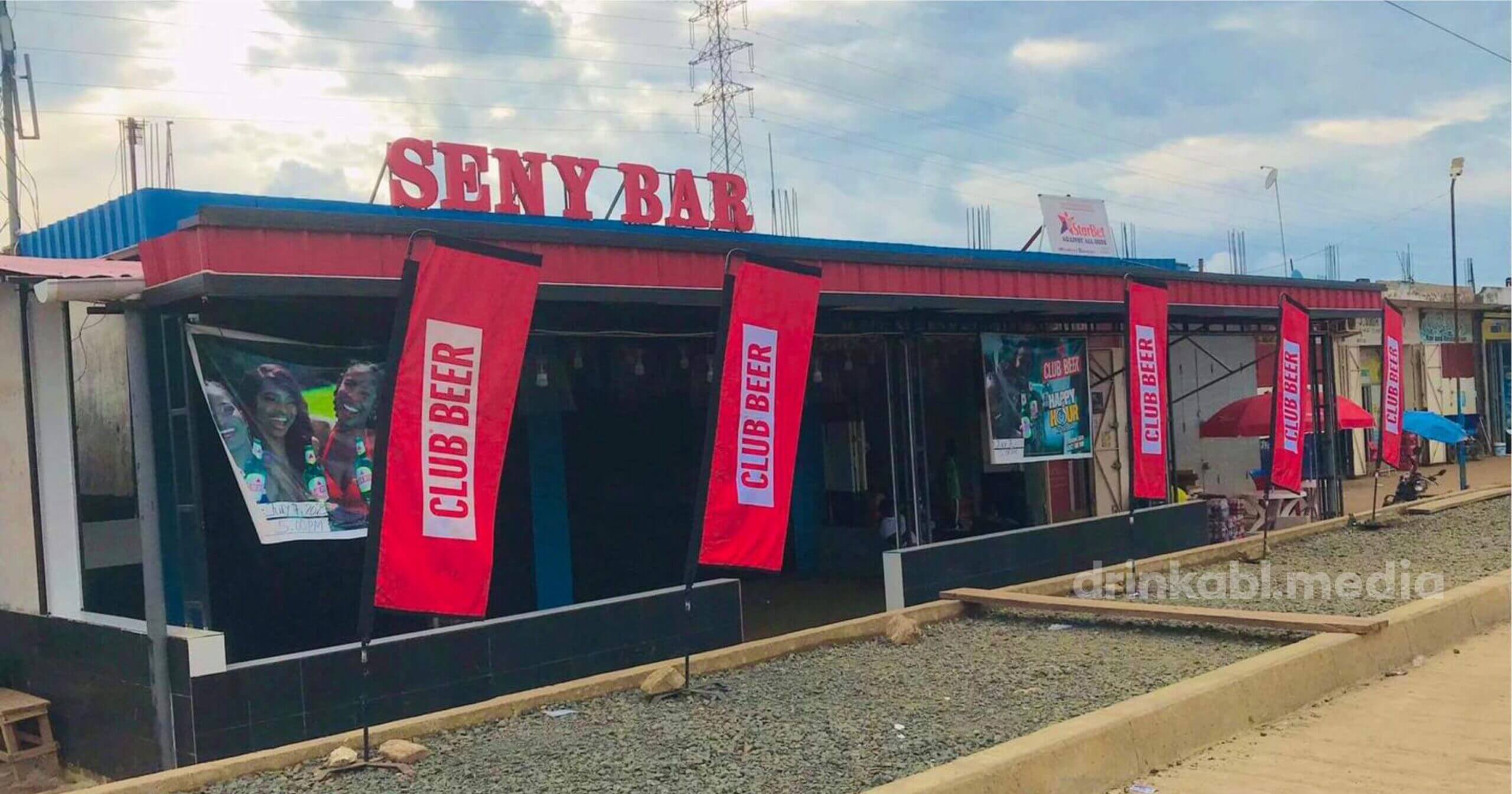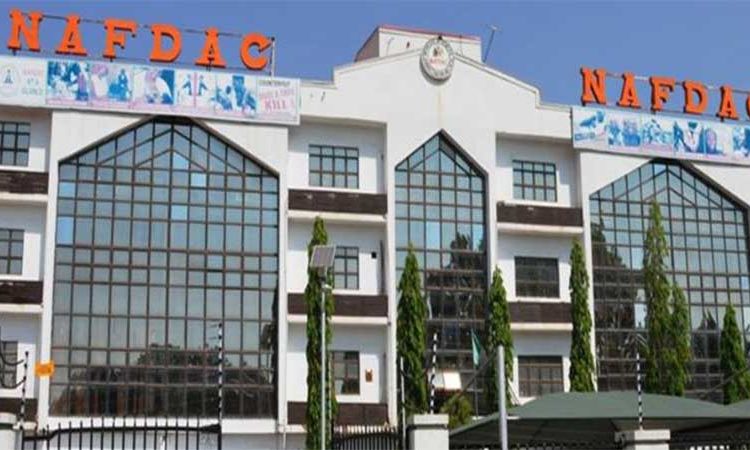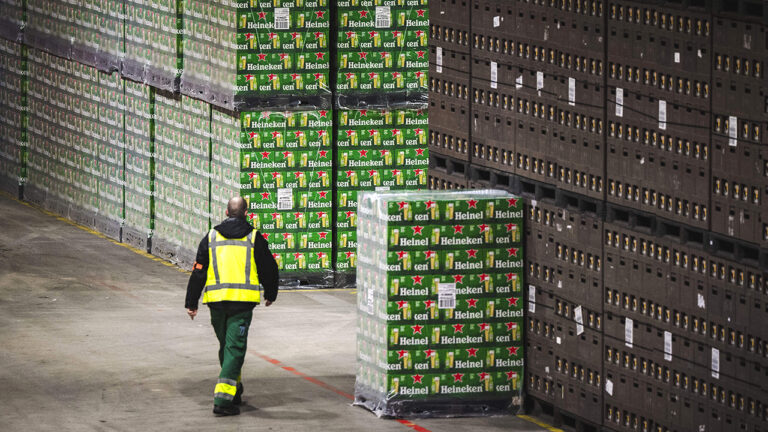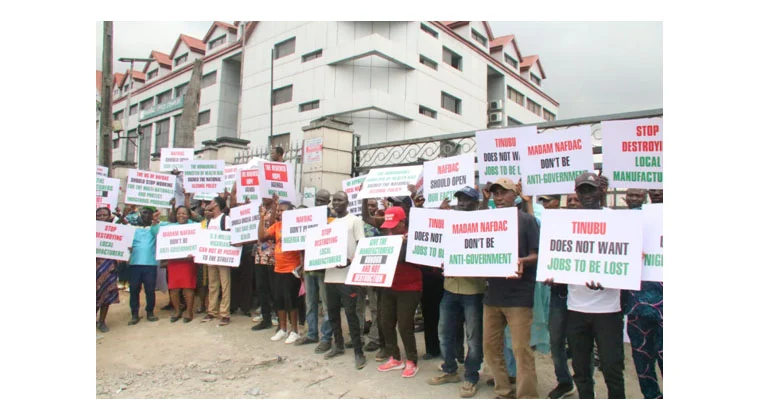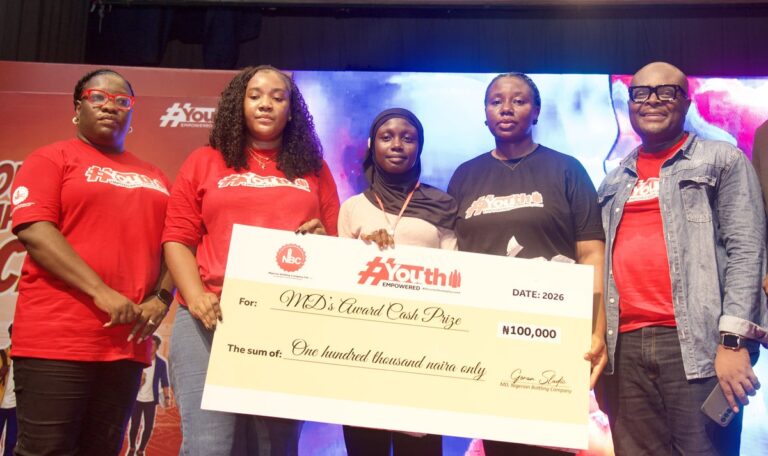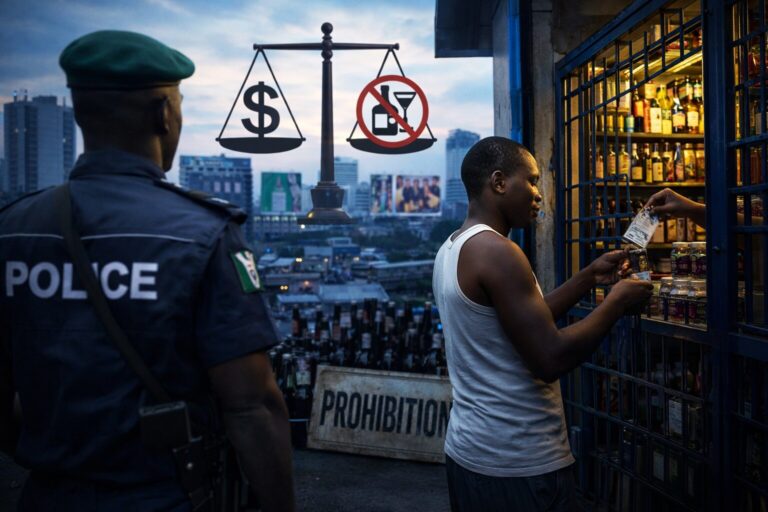If you have an interesting perspective on your experiences with beverage brands during travels, email [email protected] or Whatsapp +2349098078022 to get your story published.
My journey from Nigeria to Liberia was an enriching experience that allowed me to explore and compare the beverage consumption habits of these neighbouring West African nations.
Spending six weeks in Liberia gave me a deep dip into its vibrant culture, particularly through the lens of its diverse beverage market and consumer behaviours.
First Impressions
Upon arriving in Sinkor Street, Monrovia, Liberia’s bustling capital, I was immediately captivated by the sheer diversity of beverages available. From the familiar presence of international giants like Coca-Cola, Pepsi, American Cola, Heineken, Guinness, and Hennessy, to locally brewed concoctions, Liberia’s beverage market is a vibrant tapestry that blends traditional and modern influences with remarkable charm.
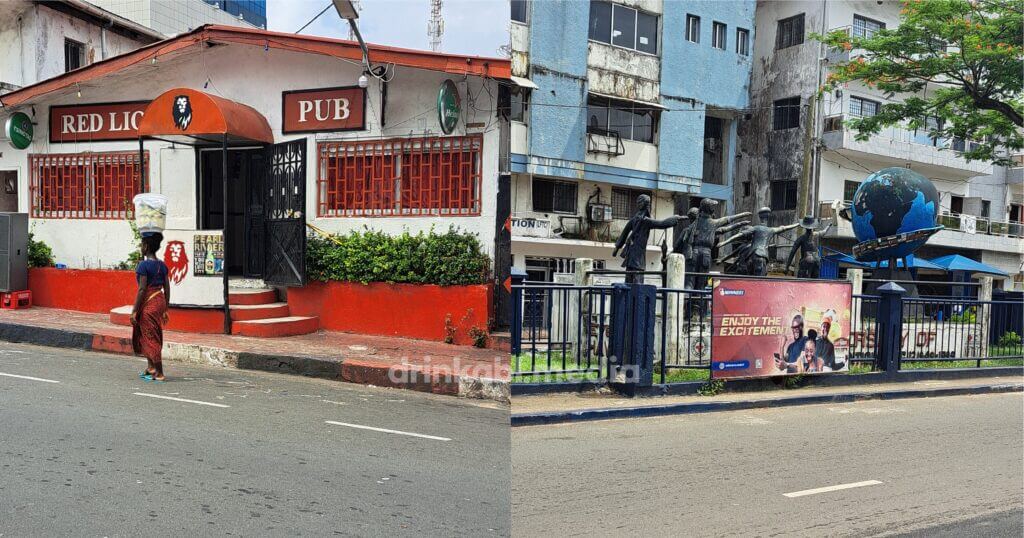
Soft Drinks and Adaptations
Global Brands like Coca-Cola and Pepsi, ubiquitous in both Liberia and Nigeria, dominate the soft drink segment. However, what struck me were the adaptations tailored to local tastes. Liberians, much like Nigerians, have a fondness for sweetened drinks, but the unique local flavors and packaging in Liberia added a distinctive twist that catered directly to regional preferences. Understanding consumer preferences provided valuable insights into Liberia’s beverage market dynamics.
While bottled water is a staple in both Liberia and Nigeria, I noted a higher demand for sachet water, or “pure water,” in Liberia, a practical and affordable choice widely favoured across different demographic groups. The preference for chilled beverages in Liberia, driven by its tropical climate, underscores consumer expectations for refreshment. Local vendors invest in refrigeration solutions despite infrastructure challenges like inconsistent electricity, a familiar hurdle in both Liberia and Nigeria that impacts beverage storage and accessibility.
Influence of Global and Local Brands
International beverage brands play a significant role in Liberia’s market, mirroring their impact in Nigeria. Coca-Cola, Pepsi, and other multinational names have entrenched themselves through consistent quality, aggressive marketing, and wide availability. What intrigued me most was their adaptation to local palates. Variants of these global brands infused with indigenous flavors exemplify the market’s dynamic nature, appealing directly to Liberian consumers’ preferences while maintaining global standards.
Traditional Beverages
Looking deeper into local traditions, I discovered the cultural significance of beverages such as palm wine and homemade ginger beer produced by the Foya Women Cooperative. Palm wine, prized for its fresh and slightly tangy flavour, is a cherished staple at social gatherings and casual meetings alike, echoing its popularity across many West African nations. Meanwhile, Liberia’s ginger beer, notably stronger and spicier than its commercial counterparts, provided a refreshing respite from the tropical heat and exemplified the country’s rich tradition of artisanal drinks.
The artisanal nature of these traditional drinks reflects Liberia’s rich cultural heritage. Palm wine, often tapped from the sap of palm trees, is a symbol of community and hospitality. It is common to see people gathered around a shared bowl of palm wine, engaging in lively conversations and fostering a sense of camaraderie. Similarly, the strong, spicy kick of ginger beer is a testament to the Liberian preference for bold flavours, offering a unique drinking experience that stands out from commercial beverages.
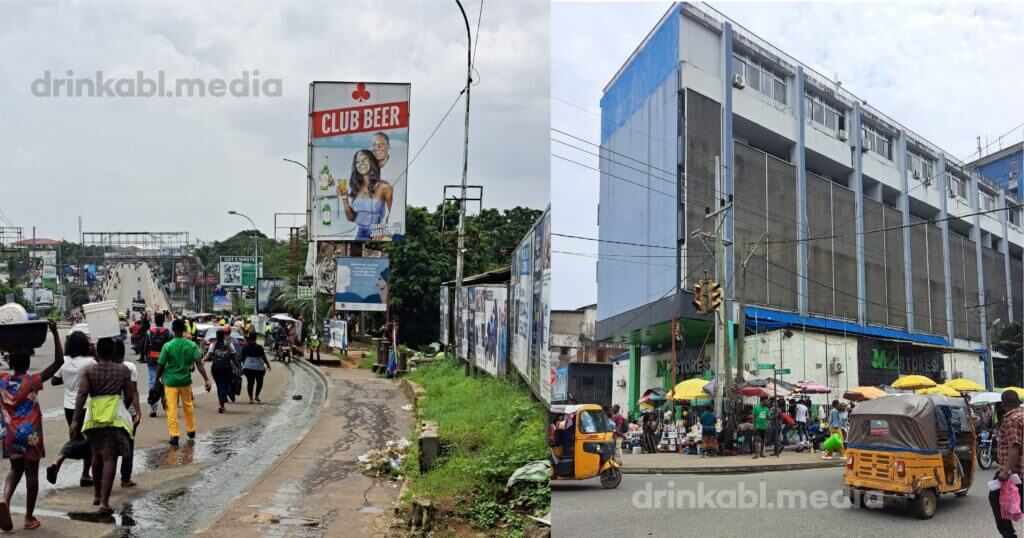
Popular Local Brands
Among Liberia’s alcoholic beverages, Club Beer produced by Monrovia Breweries Inc., emerges as a frontrunner in popularity. Celebrated for its refreshing taste and local production, Club Beer resonates deeply within Liberian culture. It symbolizes more than just a beverage choice; it embodies communal rituals, social bonding, and everyday enjoyment, making it a preferred companion in diverse social settings across the country. Its affordability and quality make it a top choice for many. Its distinctive taste and affordability make it a favourite among many Liberians. I often saw Club Beer being enjoyed at social gatherings, football matches, movie nights, and casual evenings out. The brand’s strong presence in local bars and its sponsorship of community events further cement its status as a cultural icon in Liberia.
[@dalterio1229] “It was fun serving beer cups at the SKD Sport Complex during the Liberia versus South Africa match. It was a enjoyable moment working with the team and helping refresh the fans with enough fresh draft beer from Club Beer #clubbeer #libvssa #dalterio.”
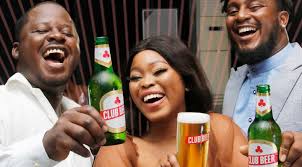
Royal Club Soft Drinks from Monrovia Breweries Inc., available in various flavours, including cola, orange, and lemon-lime, were a common sight at local shops and street vendors, appealing particularly to younger consumers.
Giant Malt, this non-alcoholic malt beverage, produced by the Liberia Coca-Cola Bottling Company (LCCBC), is highly popular for its nutritional benefits. I enjoyed Giant Malt on several two hot afternoons, finding it both refreshing and satisfying.
Liberia Coca-Cola Bottling Company (LCCBC), a subsidiary of The Coca-Cola Company, produces several popular beverages, including Coca-Cola, Fanta, Sprite, and Bonaqua bottled water. Their operations ensure the availability of fresh and high-quality products. Coca-Cola is the leading soft drink brand in Liberia. Their consistent quality, extensive marketing campaigns, and widespread availability make it a favourite among all age groups. I observed Coca-Cola being consumed everywhere, from local eateries, to informal gatherings, and more formal events.
Pepsi, a stalwart competitor, though not as dominant as Coca-Cola, has a loyal customer base in Liberia. Its presence is more noticeable in urban settings where the competition among beverage brands is more intense. Pepsi’s strategy of focusing on youth-oriented marketing and engaging sponsorships helps it maintain a significant share of the market.
Imported Beverages
Liberians also embrace international beer brands like Guinness, Heineken, and Origin. These brands have carved a niche in Liberia’s beverage market, appealing to consumers seeking quality and variety in their alcoholic choices.
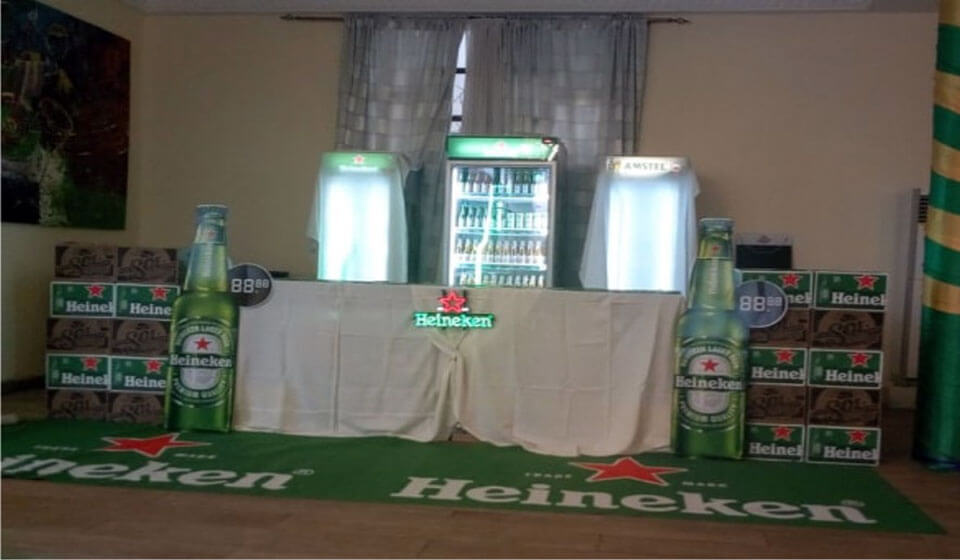
Guinness, known for its bold and robust flavour, resonates with Liberians who appreciate distinctive tastes and global brewing excellence. The dark, rich stout is particularly popular among middle-aged and older adults who prefer its complex flavour profile. Guinness’s branding emphasizes its heritage and quality, making it a premium choice for special occasions and celebrations.
Heineken, renowned for its crispness, is particularly popular in urban areas and among the expatriate community. During my time in Monrovia, I noticed Heineken being the preferred choice at upscale bars and restaurants. Its international reputation for quality and its clean, refreshing taste makes it a favoured option among discerning drinkers.
Origin, with its local twist on a global brand, offers a blend of familiarity and regional authenticity, catering to diverse preferences within Liberia’s vibrant social and cultural landscape. This beer brand has successfully integrated local flavours into its products, appealing to both local consumers and those looking for a taste of home.
To Be Continued in Part 2.
If you have an interesting perspective on your experiences with beverage brands during travels, email [email protected] or Whatsapp +2349098078022 to get your story published.

